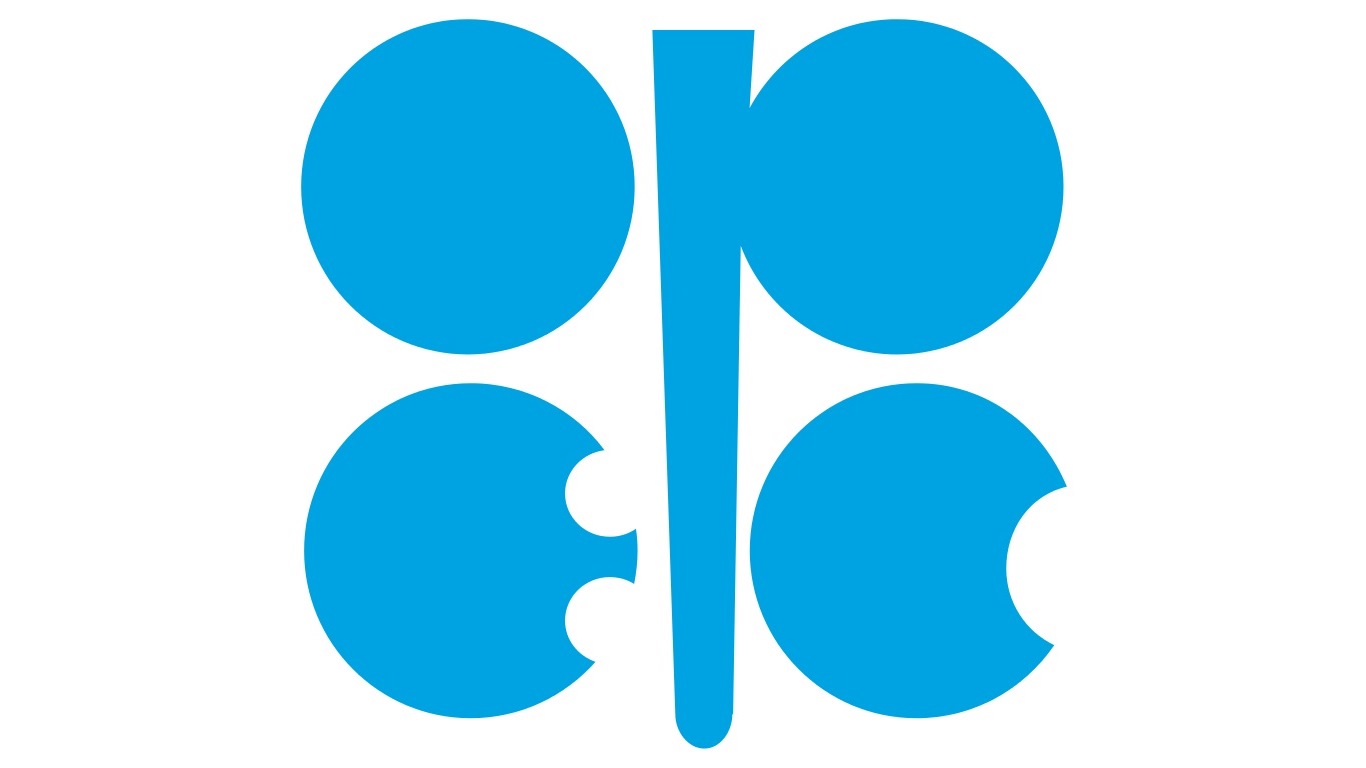Energy
OPEC Forecasts Higher Demand for Renewable Energy, Lower Demand for Oil

Published:
Last Updated:

Between 2018 and 2040, global oil demand is expected to rise from 98.7 million barrels a day to 110.6 million. Oil and natural gas are forecast to continue to meet more than 50% of global demand for energy by 2040.
Annual demand growth for oil is a rather paltry 0.5% over the period, while annual demand growth for renewables is forecast at 6.9%.
By 2024, global demand for oil is expected to reach 104.8 million barrels a day at an annual average growth rate of around 1 million barrels a day. More than 72 million barrels a day of the world’s supply of liquids (oil plus condensates) in 2024 will come from non-OPEC sources, primarily the United States, but including existing producers like Brazil, Norway, Canada and, soon, Guyana.
The forecasts were included in OPEC’s 2019 World Oil Outlook to 2040 released Tuesday. Demand for OPEC liquids is forecast to rise from 36.6 million barrels a day in 2018 to 44.4 million barrels by 2040, while demand for non-OPEC liquids is expected to rise by 9.9 million barrels a day to 72.6 million barrels, peaking in 2026 and gradually declining to 66.6 million barrels a day by 2040.
U.S. crude oil production is forecast to peak at around 22.8 million barrels a day, more than double the 10.8 million barrels produced daily in 2018. By 2040, the United States is expected to supply 19.5 million barrels a day. Tight (shale) oil production is forecast to peak at 17.3 million barrels a day in 2030 before dipping to 14.5 million barrels in 2040.
The investment needed to meet expected demand is estimated to be around $10.6 trillion. Of that total, about $8.1 trillion will be directed to upstream exploration and production while the rest will go toward midstream (pipelines and terminals) and downstream (refining and marketing) projects.
Global trade in oil as measured by exports is expected to remain nearly stable at around 38 million barrels a day with exports from the United States and Canada seen rising from around 3 million barrels a day to nearly 5 million in 2025. Between 2025 and 2040, OPEC expects exports to rise to nearly 42 million barrels a day, with exports from the United States and Canada reverting to 3 million barrels by 2040. Exports from the Middle East are forecast to pick up the slack, rising by some 7 million barrels a day to 23 million barrels a day by 2040.
At the same time that OPEC is forecasting two-decades of growth for the oil business at a cost of around $10.6 trillion, analysts at BloombergNEF, in June, forecast total investment of $13.3 trillion in the global electrical grid by 2050. The forecast calls for essentially no oil burning for electricity generation, while wind and solar generation alone account for nearly half of all electricity generation by 2050.
For the sake of argument, assume that renewable investment averages around $4.1 trillion in each of the next three decades. By 2040, global investment by BloombergNEF’s estimate will have hit $8.2 trillion. Added to OPEC’s $10.6 trillion, that’s nearly $19 trillion in 22 years.
According to the International Energy Agency (IEA), global capital spending on upstream oil projects is expected to rise 4% year over year to $497 billion in 2019. That’s higher than average annual upstream capex of around $368 billion, based on OPEC’s total estimate of $8.1 trillion through 2040.
Can renewables and oil both command these levels of investment over the next few decades? Does one have to lose in order for the other to win? Will public pressure on oil-producing countries and companies force changes in energy demand and consumption?
The average American spends $17,274 on debit cards a year, and it’s a HUGE mistake. First, debit cards don’t have the same fraud protections as credit cards. Once your money is gone, it’s gone. But more importantly you can actually get something back from this spending every time you swipe.
Issuers are handing out wild bonuses right now. With some you can earn up to 5% back on every purchase. That’s like getting a 5% discount on everything you buy!
Our top pick is kind of hard to imagine. Not only does it pay up to 5% back, it also includes a $200 cash back reward in the first six months, a 0% intro APR, and…. $0 annual fee. It’s quite literally free money for any one that uses a card regularly. Click here to learn more!
Flywheel Publishing has partnered with CardRatings to provide coverage of credit card products. Flywheel Publishing and CardRatings may receive a commission from card issuers.
Thank you for reading! Have some feedback for us?
Contact the 24/7 Wall St. editorial team.